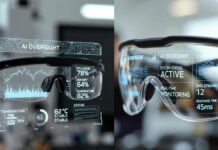October 24, 2025, marks another milestone in the rapidly evolving technology and business landscape. From pioneering AI-driven telecom initiatives to logistics innovations and global tech competition, industry leaders are steering the world toward a new era of digital transformation and industrial strategy.
Samsung and SoftBank Join Forces for AI-RAN
In a major technological collaboration, Samsung Electronics and SoftBank Corp. have signed a memorandum of understanding (MoU) to develop AI-based Radio Access Network (AI-RAN) technologies, including research into pre-6G telecom systems.
AI-RAN integrates artificial intelligence into network infrastructure, enabling:
Optimized traffic management for faster and more reliable connectivity
Predictive maintenance for telecom equipment
Energy efficiency improvements across network operations
Industry analyst Priya Deshmukh commented, “This partnership is a strategic move. AI-RAN will not only enhance mobile network performance but also lay the groundwork for future 6G networks. It’s a glimpse into the intelligent infrastructure of tomorrow.”
Amazon’s Logistics Revolution
Amazon Inc. has unveiled three innovative AI-powered technologies aimed at revolutionizing logistics operations:
Blue Jay – a robotic arm designed for automated sorting and handling of packages.
Eluna – an AI agent capable of optimizing warehouse workflows in real-time.
AR Glasses for Delivery Drivers – providing augmented reality navigation and package identification to enhance efficiency.
The company emphasizes that these technologies are part of a broader strategy to reduce delivery times, improve accuracy, and lower operational costs.
According to logistics expert Sanjay Kulkarni, “Amazon’s AI-driven approach is setting new benchmarks for supply chain automation. Companies that adopt these tools will see measurable improvements in efficiency and customer satisfaction.”
China’s Tech Self-Reliance Strategy
Amid global competition, China’s Communist Party has announced an intensified focus on technological self-reliance over the next five years. The initiative emphasizes domestic development of:
Semiconductors and AI chips
Renewable energy technologies
Advanced manufacturing and robotics
Analysts note that this policy could reshape global supply chains, as China aims to reduce dependence on foreign technology while fostering homegrown innovation.
Global tech observer Li Wei stated, “China’s self-reliance push is not just economic—it’s strategic. Countries and corporations worldwide need to anticipate potential shifts in partnerships, trade, and supply chain dynamics.”
Global Implications of AI and Technology Innovation
These developments in telecom, AI, and logistics highlight key global trends:
Digital infrastructure modernization: Companies and countries are investing heavily in intelligent networks to meet growing connectivity demands.
Automation in commerce: AI-driven logistics reduces human error and increases operational speed, reshaping labor and warehouse management.
Tech geopolitics: The race for technological sovereignty, exemplified by China and the EU’s focus on green tech protection, may redefine global collaborations.
Economist and tech analyst Rajiv Menon remarked, “Technology today is not just a tool—it’s a driver of competitive advantage, national security, and economic growth. Firms that embrace innovation strategically will lead the next decade.”
Conclusion
October 24, 2025, demonstrates that technology and business are increasingly intertwined, with AI, telecom, and logistics at the forefront of innovation. From Samsung and SoftBank’s AI-RAN initiative to Amazon’s warehouse transformation, the pace of technological advancement is reshaping industries globally.
As nations like China push for self-reliance, and multinational companies leverage AI to optimize operations, businesses and policymakers must navigate this evolving landscape with foresight, collaboration, and adaptability.
















